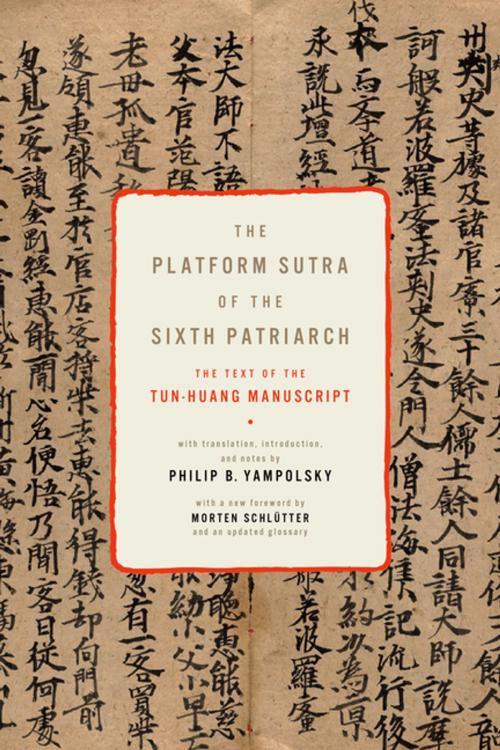The Platform Sutra of the Sixth Patriarch
Fiction & Literature, Literary Theory & Criticism, Asian, Nonfiction, Religion & Spirituality, Eastern Religions, Buddhism| Author: | ISBN: | 9780231501347 | |
| Publisher: | Columbia University Press | Publication: | April 3, 2012 |
| Imprint: | Columbia University Press | Language: | English |
| Author: | |
| ISBN: | 9780231501347 |
| Publisher: | Columbia University Press |
| Publication: | April 3, 2012 |
| Imprint: | Columbia University Press |
| Language: | English |
Dating back to the eighth century C.E., the Platform Sutra of the Sixth Patriarch is a foundational text of Chan/Zen Buddhism that reveals much about the early evolution of Chinese Chan and the ideological origins of Japanese Zen and Korean Son. Purported to be the recorded words of the famed Huineng, who was understood to be the Sixth Patriarch of Chan and the father of all later Chan/Zen Buddhism, the Platform Sutra illuminates fundamental Chan Buddhist principles in an expressive sermon that describes how Huineng overcame great personal and ideological challenges to uphold the exalted lineage of the enlightened Chan patriarchs while realizing the ultimate Buddhist truth of the original, pure nature of all sentient beings.
Huineng seems to reject meditation, the value of good karma, and the worship of the buddhas, conferring instead a set of "formless precepts" on his audience, marked by embedded notes in the text. In his central message, an inherent, perfect buddha nature stands as the original true condition of all sentient beings, which people of all backgrounds can experience for themselves. Philip Yampolsky's masterful translation contains extensive explanatory notes and an edited, amended version of the Chinese text. His introduction critically considers the background and historical setting of the work and locates Huineng's place within the history and legends of Chan Buddhism. This new edition features a foreword by Morten Schlütter further situating the Platform Sutra within recent historical research and textual evidence, and an updated glossary that includes the modern pinyin system of transcription.
Dating back to the eighth century C.E., the Platform Sutra of the Sixth Patriarch is a foundational text of Chan/Zen Buddhism that reveals much about the early evolution of Chinese Chan and the ideological origins of Japanese Zen and Korean Son. Purported to be the recorded words of the famed Huineng, who was understood to be the Sixth Patriarch of Chan and the father of all later Chan/Zen Buddhism, the Platform Sutra illuminates fundamental Chan Buddhist principles in an expressive sermon that describes how Huineng overcame great personal and ideological challenges to uphold the exalted lineage of the enlightened Chan patriarchs while realizing the ultimate Buddhist truth of the original, pure nature of all sentient beings.
Huineng seems to reject meditation, the value of good karma, and the worship of the buddhas, conferring instead a set of "formless precepts" on his audience, marked by embedded notes in the text. In his central message, an inherent, perfect buddha nature stands as the original true condition of all sentient beings, which people of all backgrounds can experience for themselves. Philip Yampolsky's masterful translation contains extensive explanatory notes and an edited, amended version of the Chinese text. His introduction critically considers the background and historical setting of the work and locates Huineng's place within the history and legends of Chan Buddhism. This new edition features a foreword by Morten Schlütter further situating the Platform Sutra within recent historical research and textual evidence, and an updated glossary that includes the modern pinyin system of transcription.















